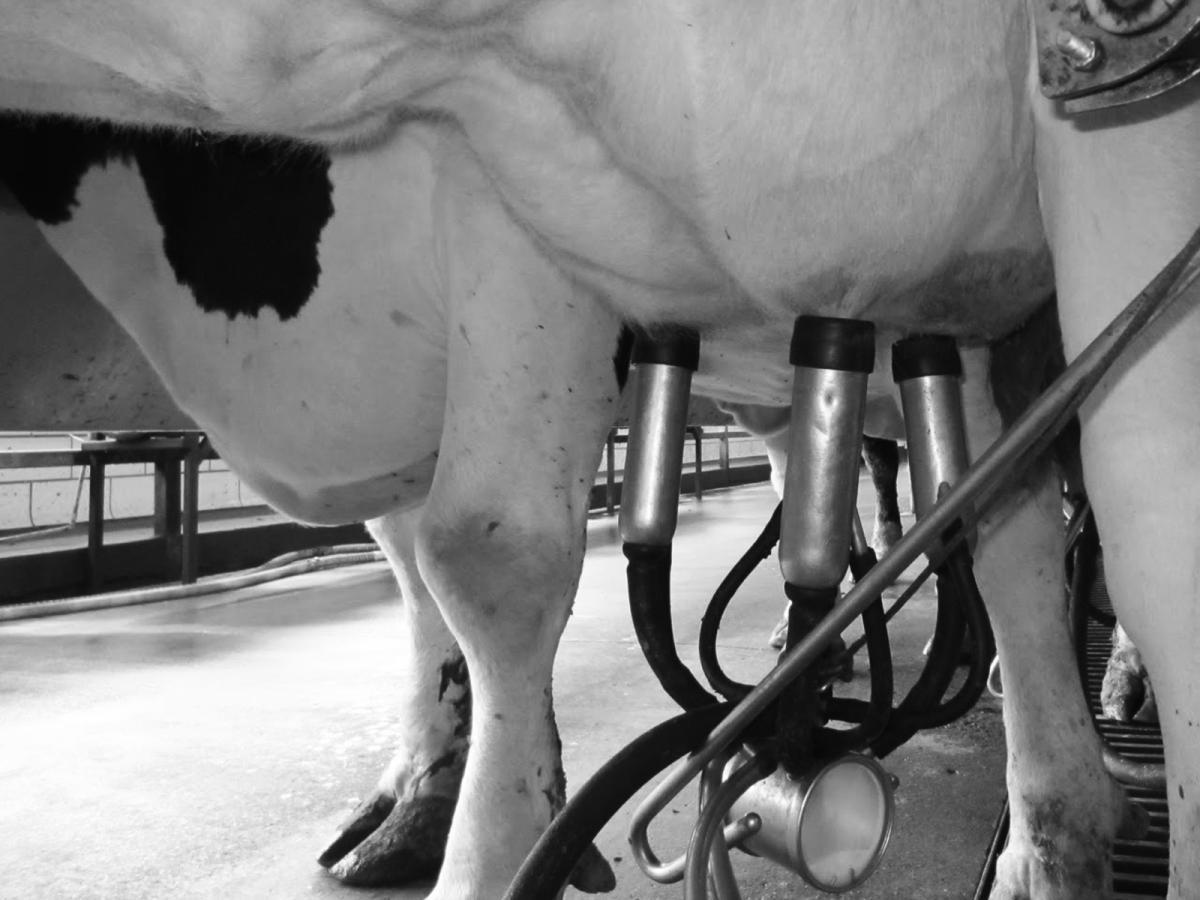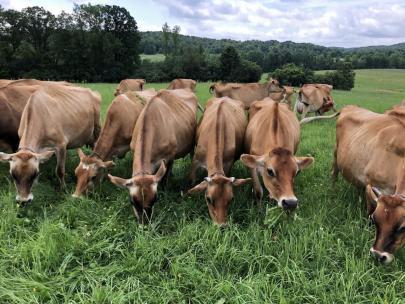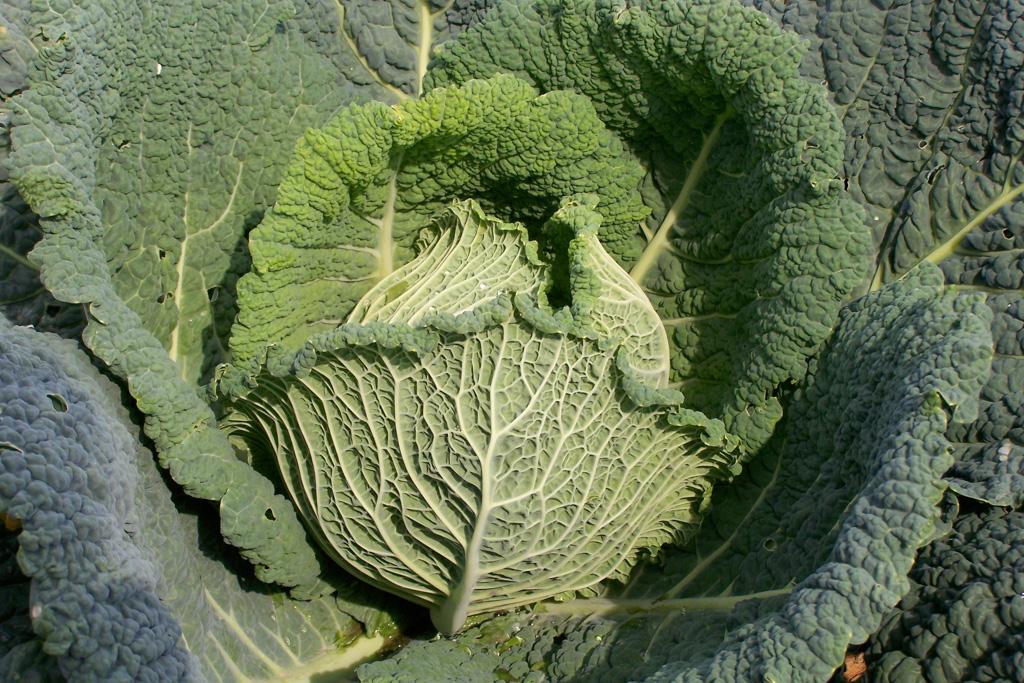
Vermont Organic Farmers (VOF), the organic certification program of NOFA-VT, has just over 200 dairies certified in Vermont; about 25% of Vermont’s dairy farms are certified organic. Six dairy farms completed their transition to organic this year with three additional farms currently in their year long transition. NOFA-VT’s Farmer Services Program is providing regular ongoing technical assistance to seven dairy farms interested in transitioning. An additional eleven dairy farms are also receiving less regular support as they research transition as an option, and several already certified farms are receiving regular assistance with planning.
Now is a great time to be proactive and see if farms are a good fit for organic, as it can take up to three years to transition - they can begin the process now and be ready for when the market opens up. This proactive planning process should include planning to assure that the land base (pasture and other crops), infrastructure and management of the farm are suitable for organic certification. It should also include financial planning and communication with potential milk buyers.
Organic Milk Market Update
Despite some of the milk buyers lowering their pay prices and an over supply of organic milk, in the U.S the demand for organic fluid milk and internationally, organic powdered milk continues to grow. According to the USDA AMS national data, overall sales from January-June 2017 were up 0.8% over January-June 2016. Total organic whole milk product sales in June 2017 were up 4% compared to June 2016. For the first half of 2017 there was a 7.7% increase in sales of organic whole milk compared to 2016.
We are currently facing an oversupply in the organic milk market and milk buyers are not signing any new producers. The oversupply is not expected to end soon and will likely continue through 2018. Milk buyers have been taking a hit, selling surplus organic milk on the conventional market for a lower price. We experienced this in 2009 as well; hopefully buyers will now pay more attention to supply management, as has been requested by producers. The organic milk market will open back up as demand for organic continues to increase, as processors work through the oversupply, recent purchases are sorted out and new processing plants are opened.
VT Milk Buyers Update
There are currently four organic milk buyers in VT- Stonyfield, Horizon (now DannonWave), Upstate Niagra and Organic Valley/CROPP. Organic Valley has two separate milk supplies in VT- 100% grassfed and ‘regular’ organic.
Stonyfield has been purchased by a French company Lactalis, the world's largest dairy products group. They are currently not signing contracts with new farms but are keeping a list of interested farmers who meet their standards. Due to the new ownership, Stonyfield is still sorting out the company details post purchase and will likely have a better market update in the coming months.
CROPP (Organic Valley) is currently not signing any new farms and they most likely will not be taking on new farms until 2019 or later (which means the soonest more farms can begin transition will be in the winter of 2018 or later). They are keeping a list of farms (and visiting farms) interested in transition. In addition to a $1 deduction for spring flush & $2/cwt drop last year, OV has a $1/cwt deduction for inventory management and they implemented a quota in March. Their 100% grass milk farms have no quota and have had no reductions in pay price.
Upstate Niagra is not taking on new farms but is keeping a list of interested farms.They are continuing to support producers and have only had to reduce their pay price by $3/cwt compared to 2016’s price.
Horizon, now DannonWave, is also not taking on any new farms currently. DanoneWave recently announced a $4/cwt pay price drop effective September 1 and an additional $1/cwt drop effective October 1; this will not affect seasonal or quality premiums. Their winter premium is still in place which means that some farmers may not feel the effects of the price drop until February. They have asked producers for a voluntary 5% reduction in production. Due to the new ownership, we should expect to see changes as farmers current contracts end and are re-negotiated. During this time, it is important that producers focus on milk quality in order to get a favorable contract.
The organic milk oversupply has affected each milk buyer differently as some have a significant oversupply, while other buyers are better able to utilize their supply. Farmers interested in transitioning to organic in the future should contact all the milk buyers and stay in communication with them as part of their planning process.
Technical Assistance Considerations
Milk Quality

With the oversupply, lower pay price, and lack of buyers signing new farms, challenges are arising for organic dairy farmers as well as farms interested in transition. Financial and business planning is very important right now. With stagnant or lower pay price, there are some important management considerations farmers should be thinking about. With some producers being held to a quota, it is imperative that they make the most out of their milk check, take advantage of quality premiums and focus on milk quality. It also might be important to reexamine the number of young stock in inventory, raising just enough replacements as needed. Keep in mind with lower milk prices, organic heifer/cow prices have also dropped.
Farm Succession
Lower or stagnant pay prices, combined with limits on milk production for some farms may lead to more older farmers retiring. This may be an opportunity for the next generation and young farmers to take over. In some situations, an organic milk buyer may transfer the contract with the herd if a young farmer buys a retiring farmers’ herd. However, as milk markets continue to be in oversupply this may not be as easy to do as it was in past years.
The last significant oversupply in the organic milk market lasted about eighteen months. It is looking like this will be a longer recovery and it is important for farms to focus on long term business planning. It’s also important to continue to provide support to conventional farms interested in transitioning and help those farmers make the best financial decisions now for a potential later transition, particularly if conventional prices continue to remain low.
Winter Feed
With the weather and stress on crops this year, it is also important for farmers to conduct a fall forage inventory. We recommend forage testing for quality and we encourage farmers to appropriately plan to ration their higher quality feed to appropriate groups of cattle. Taking representative forage samples and sending them to a regional lab is the best way to assess forage quality. Regional NFTA (National Forage Testing Association) certified labs near our area are:
- Cumberland Valley Analytical Services- Waynesboro, PA (301) 790-1980 http://www.foragelab.com/
- Dairy One- Ithaca, NY (607)257-1272 http://dairyone.com/analytical-services/feed-and-forage/services-and-pr…;
Soil Testing
High rainfall events this summer have also contributed to soil fertility deficiencies in some fields. Testing
soils this fall will provide important information to help farmers apply the correct fertility, comply with their nutrient management plans and assure crop yields are not negatively impacted next season.
For more information, please contact:
Kyla Bedard, NOFA-VT Dairy Program Coordinator
[email protected] • (802)434-4122

